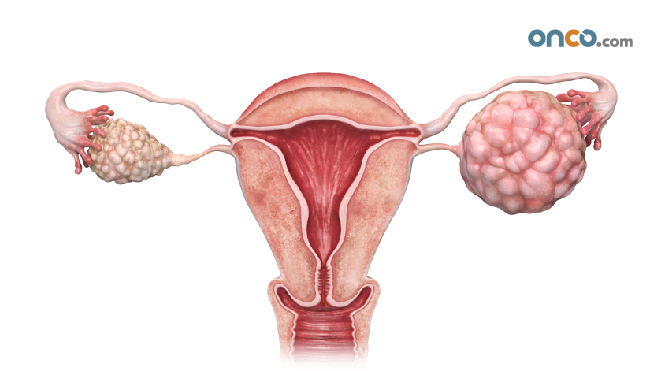Can women inherit ovarian cancer?
Ovarian cancer is the type of cancer where malignant cells are found inside, near, or on the outer layer of the ovaries. The ovary is the essential reproductive organ in the female body. Females have a pair of ovaries that are responsible for producing eggs for fertilization. The ovaries also have the role of producing hormones, estrogen, and progesterone. The ovaries consist of three kinds of cells, and ovarian cancer can stem from these cells. Ovarian cancer is hereditary. And the chance of it being hereditary depends on the type of ovarian cancer. There are numerous genetic factors like mutations that play a role in the inheritance of ovarian cancer. Find the most common gene mutations below.




The BRCA1 and BRCA2 genes affect the risk of both ovarian and breast cancer. Every person is born with a copy of the BRCA1 gene and the BRCA2 gene. One copy of each gene passes on from the mother, and the other copy passes on from the father. Therefore, if either the mother or father has a mutation, there is a high risk of the person developing ovarian and breast cancer.
The BRCA1 and BRCA2 genes, or tumor suppressor genes, which indicates that when working regularly, these genes help in protecting a person from developing cancer. However, If a person inherits a copy of the gene mutation of either BRCA1 or BRCA2, there are chances of the person developing cancers like ovarian cancer and breast cancer. However, studies have also shown that not all who inherit the gene mutation will develop cancer.
- Ovarian cancer is common in women with the BRCA1 gene mutation at a younger age as compared to women who develop ovarian cancer with the BRCA2 gene mutation.
- The diagnosis happens with BRCA1 gene mutations in women who are between the ages of 35 and 50.
- Ovarian cancer that occurs due to BRCA2 gene mutations is common in women after the age of 60.
- It is also imperative to check and identify the BRCA1 or BRCA2 gene mutations so prevention and early treatment of ovarian cancer is possible. Genetic testing will determine if there is a BRCA1 or BRCA2 gene mutation.
Other risk genes
When it comes to ovarian cancer, there are two risk genes. These genes are involved with mismatch repair and Fanconi anemia pathways that deal with the repair of damaged DNA.
Women who have mutations in the mismatch repair genes have a risk of developing ovarian cancer in their lifetime. These kinds of modifications are in non-serious ovarian cancers like clear cell cancers of endometrial cancers. Women who inherit a mismatch repair gene also have a condition called Lynch syndrome. Lynch syndrome is a kind of inherited cancer syndrome linked with a genetic predisposition to different cancer types. Women with Lynch syndrome are at risk of developing breast cancer as well as ovarian cancer and may develop other types like colorectal or endometrial cancer as well.
Mutations seen in Fanconi anemia pathways are still under study. But scientific data has shown that women with these gene mutations have a risk of developing ovarian cancer and breast cancer in their lifetime. Mutations in the Fanconi anemia pathway genes are also present in all five types of ovarian cancer.
